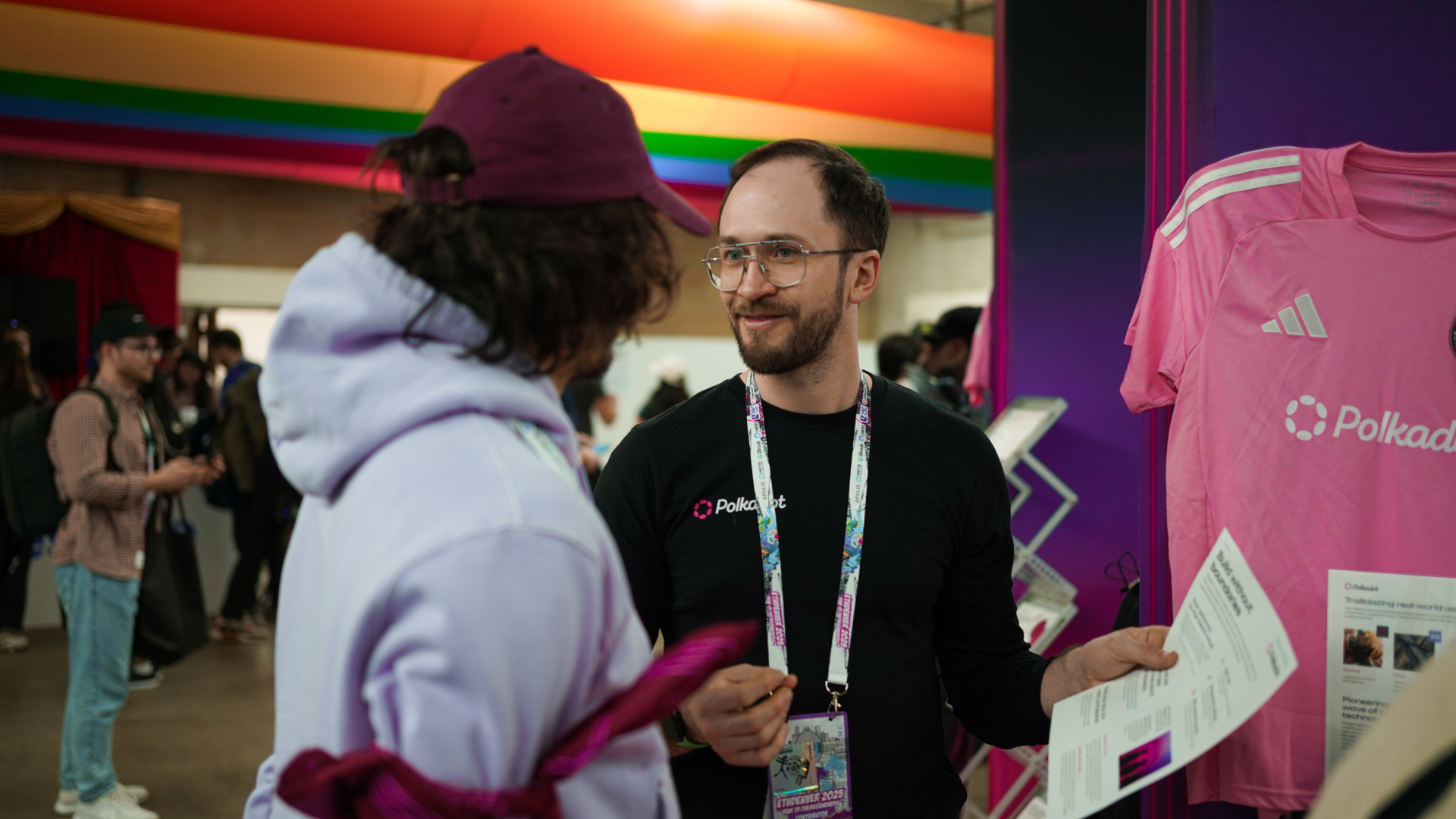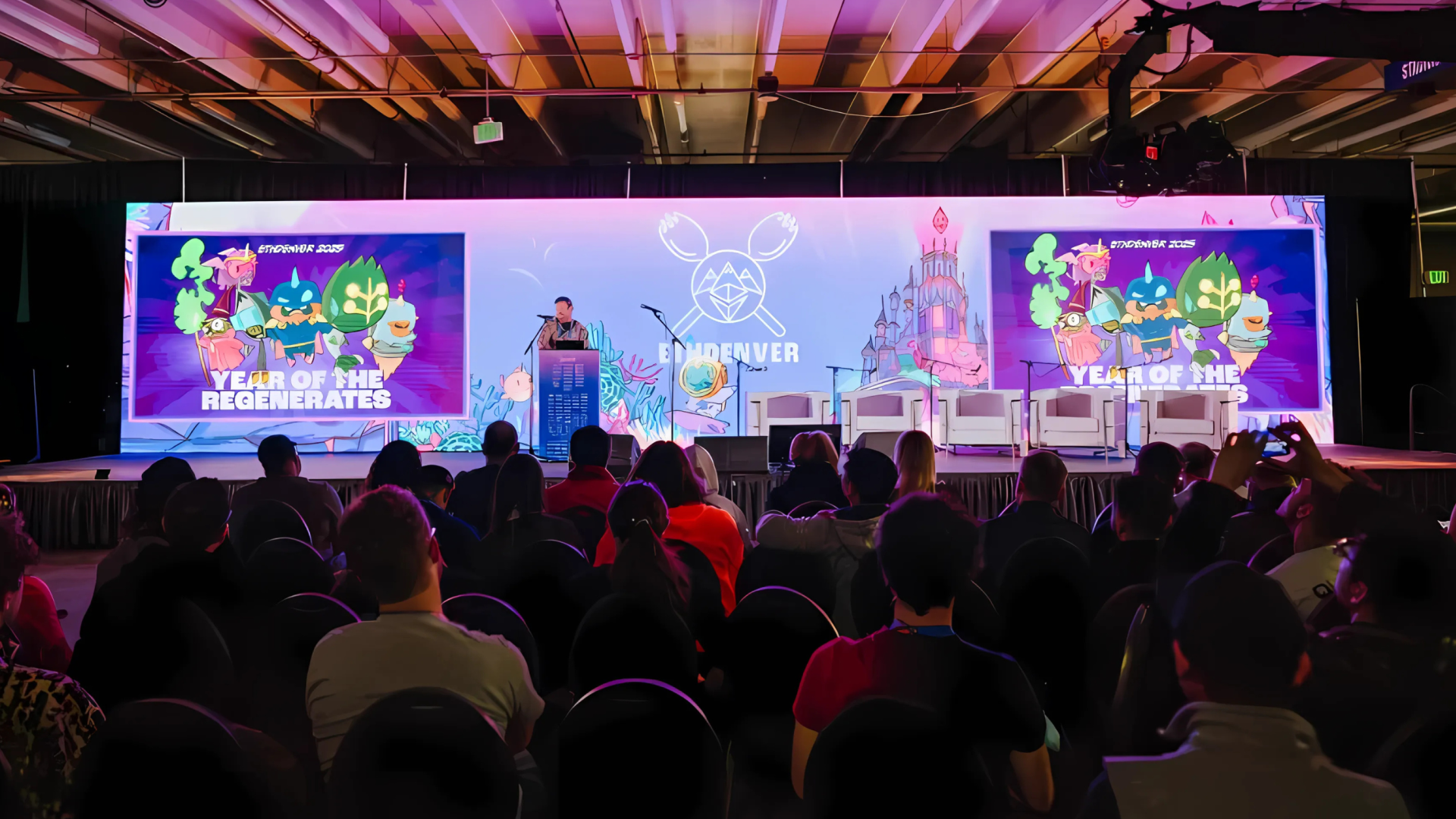Major Milestone Achieved: Polkadot and Chainlink Integration Using Substrate
By being the first Substrate-based oracle solution, Chainlink is set to become the first and primary oracle provider for all Substrate-based chains and eventually the entire Polkadot network.
 By Polkadot•February 25, 2020
By Polkadot•February 25, 2020
Polkadot adds market-leading network of decentralized oracles in critical step towards parachain development
Chainlink has completed an initial integration with a Substrate-based blockchain, marking a major milestone in the mission to bring Chainlink's market-leading network of decentralized oracles to the Substrate chain ecosystem and Polkadot. This is the first blockchain ecosystem outside of Ethereum that Chainlink will support. By being the first Substrate-based oracle solution, Chainlink is set to become the first and primary oracle provider for all Substrate-based chains and eventually the entire Polkadot network. Polkadot developers can use Chainlink’s decentralized oracle networks to quickly connect their smart contracts to all the inputs and outputs they need to run securely and reliably end-to-end, while avoiding the major pitfalls associated with trying to deploy your own oracles, such as long time delays, additional expenses, and even fatal security flaws.
This initial integration with Substrate will open a pathway towards integrating Chainlink with a dedicated parachain or even building one, following Polkadot's launch. Prior to launching its parachain on Polkadot, Chainlink will deploy a parachain on Kusama. A Chainlink parachain would let Polkadot’s parachains and dApps access virtually any external, real-world resource. Parity Technologies, the lead development team for Polkadot and Substrate, has contributed significant code to the Chainlink’s open-source repository in Github to accelerate the integration and bring it to our developers.
Chainlink’s protocol facilitates trusted marketplaces for obtaining quality oracles and provides extensive tooling for using them within customizable and decentralized frameworks. Chainlink is quickly becoming the de-facto standard in the Oracle-as-a-Service category and is seeing wide adoption across the blockchain landscape, including several decentralized finance projects and large enterprises, such as Synthetix and Google.
Blockchain-based smart contracts provide valuable new infrastructure that supports a myriad of new decentralized applications, but are limited in their ability to natively integrate with real-world data, such as using Tesla’s stock price or a user’s Venmo activity to trigger a blockchain transaction. Oracles solve this problem for smart contracts by fetching inputs from outside the blockchain (via external data feeds and APIs) and triggering outputs on external systems by signing claims about the state of the off-chain world, effectively making smart contracts externally aware and connected.
Oracles on their own however are not necessarily secure, as a centralized oracle introduces a single point of failure for a smart contract. Even if the underlying blockchain is fully decentralized and the smart contract code is flawless, the data feed triggering the contract can make the entire contract insecure.
Chainlink is a decentralized oracle network that extends the security guarantees of the smart contract using a similar security model as the blockchain supporting it, namely decentralized computation. Smart contract developers can leverage Chainlink to decentralize data delivery by using multiple independent oracles (nodes) to fetch the same data point, and ensure data quality by having them pull data from multiple independent sources. Users can then incorporate customized aggregation models to formulate a single, reliable data point to trigger their critical smart contract.
By parallelizing transactions through heterogeneous sharding, Polkadot aims to solve many of the issues that have so far held back implementation of blockchain technology on a massive scale, most notably connection between blockchains, scalability, strong network security from day one for new parachains, governance, and developer experience. The project was founded in 2016 by Gavin Wood, the co-founder and CTO of Ethereum and creator of the Solidity programming language.
Substrate, used for the Chainlink integration, is the groundbreaking blockchain development framework from Parity Technologies. Created for maximum flexibility and ease of development, Substrate's modular and composable architecture abstracts away as much blockchain development as possible, freeing teams to focus on their project's unique business logic. Using Substrate, projects gain access to pluggable consensus and forkless upgrades. Projects can start building on Substrate today and significantly decrease development time and expense both now and in the future.
Chainlink Partnership Accelerates Polkadot Use Cases
The integration of Chainlink’s decentralized oracle network on a dedicated parachain can unlock multiple use cases on Polkadot. For example, a parachain optimized for self-sovereign identity would be able to reliably query off-chain data such as identity-based digital signatures or verifiable claims using Chainlink’s oracles. Similarly, a decentralized payments network built with Substrate on a Polkadot parachain could securely access real-world payment settlements and invoicing data via Chainlink’s oracle network. On a Polkadot parachain optimized for decentralized finance (DeFi), smart contracts and DApps would be able to leverage decentralized pricing feeds for crypto-native derivatives, real-world data for decentralized prediction markets, or stock market price feeds for tokenized equities trading.
Thanks to Chainlink’s growing decentralized network of independent, Sybil resistant, and security reviewed node operators, smart contracts on parachains will be able to easily and securely access a wide variety of preformatted inputs and outputs to replicate existing digital agreements. This will allow Polkadot to use all types of off-chain data and systems to trigger contract execution, as well as settle contracts through a variety of payment gateways and enterprise backend systems. Ultimately, it leads to secure, data-enabled smart contracts that can interface with existing world infrastructure.
The teams behind the completion of this proof of concept will now be working toward the next step of preparing for the launch of Chainlink’s parachain, first on the Kusama network and then on the Polkadot network.
Integration Demo Video
About Polkadot
Polkadot is a scalable sharded chain and the first protocol that provides a secure environment for cross-chain composability of applications and protocols across multiple shards.
By parallelizing transactions, Polkadot solves major scalability issues that have thus far hampered blockchain development. Polkadot also introduces a highly advanced, open governance system that will allow the network to innovate and grow at a much more rapid pace than legacy networks. Applications from decentralized finance and energy to gaming and communications will thrive on Polkadot, challenging the centralized platforms of Web 2.0. Polkadot was created in 2016 by Gavin Wood, the co-founder and CTO of Ethereum and creator of the Solidity programming language.
Polkadot’s codebase, networking, on-chain governance, and validator environment can be experienced today on Kusama Network, Polkadot’s wild cousin. Kusama is a standalone, lower barrier-to-entry network built as a blockchain environment where developers can try out new features before they are introduced to Polkadot.
Learn more by joining Polkadot’s Newsletter, Twitter, Reddit, Riot Chat, or Telegram. Technical education can be found on the Polkadot Wiki. Join our ongoing series of webinars on Polkadot’s Crowdcast. Lastly, we encourage you to apply to the Polkadot Ambassador Program to get more deeply involved in the community through technical development and community growth of Polkadot globally.
About Substrate
Substrate is the groundbreaking blockchain development framework from Parity Technologies. Created for maximum flexibility and ease of development, Substrate's modular architecture abstracts away as much blockchain development as possible, freeing teams to focus on their project's unique business logic.
Using Substrate, projects gain access to Parity’s new and unique advances in blockchain technology, including pluggable consensus and forkless upgrades. In addition, Substrate-based chains easily can connect to Polkadot for shared security and interoperability. Projects can start building on Substrate today and significantly decrease development time and expense both now and in the future.
Substrate is the culmination of the expertise Parity gained building Ethereum, Bitcoin, Zcash, Polkadot, and numerous private blockchain clients. Teams interested in building with Substrate and receiving support from Parity Technologies can apply for the Substrate Builders Program.
About Chainlink
Chainlink is a decentralized oracle network that enables smart contracts to securely access off-chain data feeds, web APIs, and traditional bank payments. Chainlink is consistently selected as one of the top blockchain technologies by leading independent research firms such as Gartner. It is well known for providing highly secure and reliable oracles to large enterprises (Google, Oracle, and SWIFT) and leading smart contract development teams such as Polkadot/Substrate, Synthetix, Loopring, Aave, OpenLaw, Etherisc, Conflux, and many others.
Learn more by visiting the Chainlink website, Twitter or Reddit. If you’re a developer, visit the developer documentation or join the technical discussion on Discord.
Update, February 25, 2020.
Chainlink integration was achieved using Substrate.











